Securing Your Safety During Job Interviews
Job interviews can be both exciting and nerve-wracking experiences. You’re stepping into a new environment, showcasing your skills, and hoping to impress potential employers. However, amid this whirlwind of emotions, it’s crucial to prioritize your safety. Just like you wouldn’t dive into a pool without checking the water first, you shouldn’t enter an interview without ensuring that your personal safety is secured. In this article, we will explore essential strategies and precautions to help you navigate the interview process confidently and securely.
Let’s face it: job interviews can present various risks. From personal safety concerns to potential scams, recognizing these risks is the first step in ensuring a safe interview experience. Imagine walking into a room where the atmosphere feels off, or receiving a job offer that seems too good to be true—these can be warning signs. By being aware of the potential dangers, you can arm yourself with the knowledge needed to protect yourself. After all, the last thing you want is to walk away from an interview feeling uneasy or, worse, having fallen victim to a scam.
Before you even step foot in an interview room, it’s vital to do your homework. Thoroughly researching the company can help you assess its legitimacy and safety. Think of it as gathering intel before a big mission. Knowing the company's background allows you to make informed decisions about the interview setting. Are they reputable? Do they have a solid track record? These are questions you should be asking yourself.
One of the best ways to gauge a company’s culture and safety practices is by checking online reviews and testimonials from former employees. Websites like Glassdoor or Indeed can provide valuable insights. If you notice a pattern of complaints regarding safety or toxic work environments, it’s a red flag. For example, if multiple reviews mention issues like harassment or unethical practices, it’s time to reconsider whether this is the right opportunity for you.
When sifting through reviews, keep an eye out for certain red flags. Here are some signs that may indicate potential risks:
- Frequent complaints about safety issues.
- Negative comments regarding management practices.
- Unverified job postings or vague job descriptions.
Being aware of these signs can protect you during the interview process and help you avoid situations that could compromise your safety.
Social media platforms can also offer a glimpse into a company's environment. Observing employee interactions and company activities can help you assess its safety and culture. For instance, check out the company’s LinkedIn page or their Twitter feed. Are employees engaging positively? Is there a sense of camaraderie? These observations can provide valuable context as you prepare for your interview.
Before attending an interview, ensure the location is safe and reputable. Confirming the address and checking for nearby amenities can contribute to a secure interview experience. Imagine arriving at a sketchy location with no nearby public places or people around—it’s unsettling! Always opt for interviews in well-lit, populated areas. If the interview is virtual, ensure your home environment is free from distractions and feels safe.
Preparation is key to a safe interview. By planning your route, informing someone about your schedule, and carrying necessary items, you enhance your personal security during the meeting. Imagine this: you’re dressed to impress, you know your stuff, and you’ve mapped out your route. You’re not just prepared; you’re empowered!
Letting a friend or family member know your interview details ensures someone is aware of your whereabouts. This simple step can provide an additional layer of safety during your job search. Share your interview time, location, and any other pertinent details. It’s like having a safety net—if anything feels off, someone will know where to find you.
Selecting suitable attire for the interview not only impacts first impressions but also ensures comfort and confidence. Dressing appropriately can help you feel secure and professional during the meeting. Think of it this way: when you look good, you feel good. And when you feel good, you’re more likely to perform well. So, choose an outfit that makes you feel like a million bucks!
Your instincts can be a powerful tool in assessing safety during interviews. If something feels off, it’s essential to listen to those feelings and take necessary precautions to protect yourself. Just like a sixth sense, your intuition can guide you. If the interviewer’s demeanor raises red flags or if the company’s vibe doesn’t sit right with you, don’t hesitate to walk away. Your safety should always come first.
Q: What should I do if I feel unsafe during an interview?
A: Trust your instincts. If you feel uncomfortable, it’s okay to excuse yourself politely. Your safety is paramount.
Q: How can I verify a company’s legitimacy?
A: Research online reviews, check their social media presence, and look for any complaints or red flags related to safety or ethics.
Q: Should I inform someone about my interview details?
A: Yes! Always let a trusted friend or family member know your interview details for added safety.
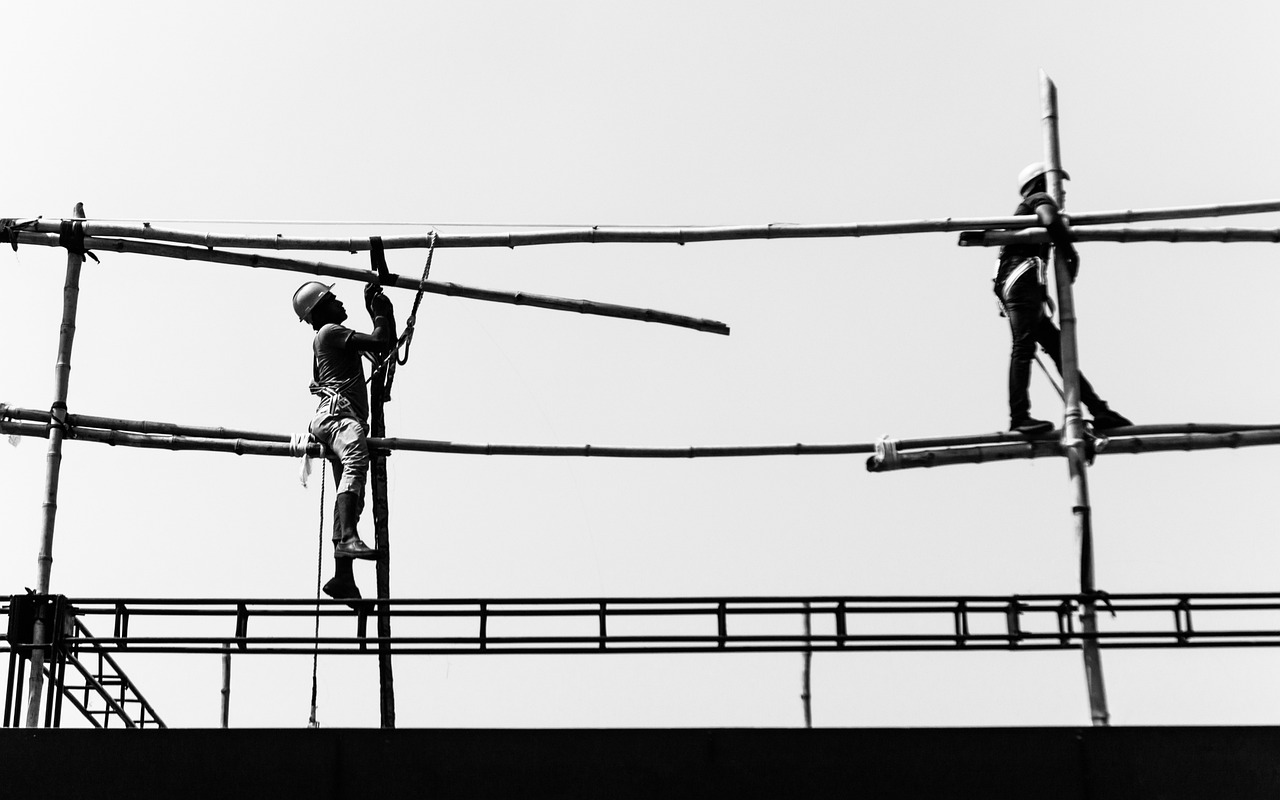
Understanding the Risks
Job interviews can be a mix of excitement and anxiety, but they also come with their own set of risks. It's not just about nailing those interview questions; you need to be aware of your surroundings and the potential threats that could arise. Imagine stepping into a room where you feel uneasy or sensing that something just isn't right. These feelings aren't just in your head—they can be valid indicators of a situation that may not be safe.
One of the most significant risks during job interviews is the potential for personal safety concerns. You might be meeting someone you’ve never met before in a location you’re unfamiliar with. It’s crucial to recognize that not every job opportunity is legitimate, and some interviews can turn out to be scams. To illustrate this point, consider the following:
| Type of Risk | Description |
|---|---|
| Scams | Fake job offers that require payment or personal information. |
| Unsafe Locations | Interviews held in questionable areas or secluded places. |
| Unprofessional Behavior | Interviewers who act inappropriately or make you feel uncomfortable. |
Recognizing these risks is the first step toward ensuring a safe interview experience. But how do you identify these potential dangers? Start by doing your homework. Researching the company and understanding its background can provide you with valuable insights. If a company has numerous complaints about safety or unethical practices, you should take these warnings seriously. A simple search can reveal a lot about whether a place is safe to work.
Additionally, trust your gut. If something feels off during the interview—whether it’s the location, the interviewer’s demeanor, or the overall vibe—don’t hesitate to reconsider your decision. Your instincts are a powerful tool, and they can often sense danger before your mind has fully processed it. Remember, it’s perfectly okay to prioritize your safety over landing a job.
In summary, understanding the risks associated with job interviews is essential for navigating the process confidently. By being aware of potential scams, unsafe locations, and unprofessional behavior, you can make informed decisions that prioritize your safety. So, as you prepare for your next interview, keep these risks in mind and take the necessary precautions to protect yourself.
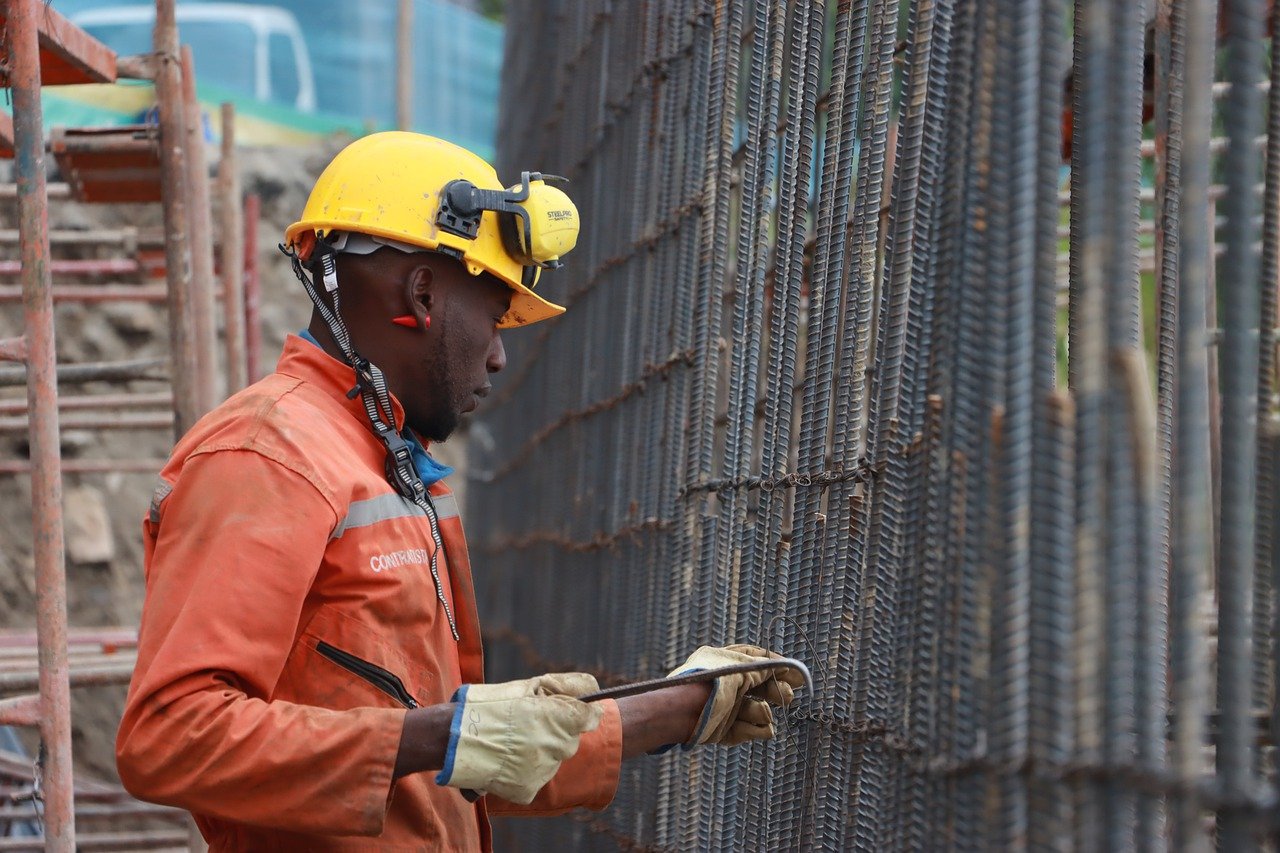
Researching the Company
When it comes to job interviews, knowledge is power. Taking the time to thoroughly research the company you’re interviewing with can be a game changer. Not only does it help you understand the organization's mission and values, but it also equips you with the information needed to assess its legitimacy and safety. Imagine walking into an interview armed with insights that could help you navigate tricky questions or even spot potential red flags. It’s like having a map in an unfamiliar territory; it gives you confidence and direction.
Start by diving into the company's website. Explore their About Us section, mission statements, and any recent news articles or press releases. This will give you a solid foundation of who they are and what they stand for. But don't stop there! You should also check out other platforms to gain a broader perspective. Online reviews can be a treasure trove of information. Websites like Glassdoor or Indeed often feature employee reviews that can reveal a lot about the company culture and work environment.
While you’re browsing through these reviews, keep an eye out for common themes. Are employees consistently praising the supportive work culture? Or are there frequent complaints about unethical practices? This is where you can spot the red flags. For instance:
- High turnover rates
- Frequent complaints about management
- Negative comments about workplace safety
Another great way to gauge a company's environment is through social media. Platforms like LinkedIn, Facebook, and Twitter can provide real-time insights into how the company interacts with its employees and the public. Look for posts that showcase employee achievements or community involvement. These can indicate a positive work culture. However, be cautious of overly polished posts that seem more like a marketing strategy than genuine employee engagement.
In addition to online research, consider reaching out to current or former employees. Networking can provide first-hand accounts of what it’s like to work there. You could ask questions like:
- What’s the company culture like?
- How does the company handle employee safety?
- Have there been any significant changes recently?
By gathering all this information, you’ll not only be prepared for your interview but also empowered to make an informed decision. After all, your safety and well-being should always come first. So, dive deep into your research and make sure that the company you’re considering aligns with your values and expectations. Remember, it’s not just about landing a job; it’s about finding a place where you can thrive.

Checking Online Reviews
This article discusses essential strategies and precautions to ensure your safety during job interviews, helping you navigate the process confidently and securely.
Job interviews can present various risks, including personal safety concerns and potential scams. Recognizing these risks is the first step in ensuring a safe interview experience.
Thoroughly researching the company before your interview can help you assess its legitimacy and safety. Knowing the company's background allows you to make informed decisions about the interview setting.
In today’s digital age, online reviews serve as a crucial tool in evaluating a potential employer's credibility. Before stepping into an interview, it's vital to dive deep into what others are saying about the company. Websites like Glassdoor, Indeed, and even social media platforms can provide a wealth of information. Look for patterns in the reviews; if multiple former employees mention a lack of safety or ethical concerns, it’s a significant red flag.
When checking reviews, pay attention to the following aspects:
- Overall Rating: A company with a consistently low rating might indicate deeper issues.
- Employee Feedback: Look for comments regarding workplace safety, management practices, and company culture.
- Response to Criticism: How does the company respond to negative reviews? A defensive or dismissive attitude can signal potential problems.
Moreover, consider the context of the reviews. One or two negative comments might not be enough to disqualify a company, especially if there are many positive reviews. However, if you see a trend of complaints about the same issues, it’s worth taking seriously. This process not only helps you gauge the company's environment but also prepares you for any potential questions during the interview.
Certain red flags in company reviews, such as frequent complaints about safety or unethical practices, can indicate potential risks. Being aware of these signs can protect you during the interview process.
Social media platforms can also offer a glimpse into a company's environment. Observing employee interactions and company activities can help you assess its safety and culture.
Before attending an interview, ensure the location is safe and reputable. Confirming the address and checking for nearby amenities can contribute to a secure interview experience.
Preparation is key to a safe interview. By planning your route, informing someone about your schedule, and carrying necessary items, you enhance your personal security during the meeting.
Letting a friend or family member know your interview details ensures someone is aware of your whereabouts, providing an additional layer of safety during your job search.
Selecting suitable attire for the interview not only impacts first impressions but also ensures comfort and confidence. Dressing appropriately can help you feel secure and professional during the meeting.
Your instincts can be a powerful tool in assessing safety during interviews. If something feels off, it's essential to listen to those feelings and take necessary precautions to protect yourself.
Q: How can I verify if a company is legitimate?
A: Research the company through online reviews, check their official website, and look for any news articles or reports about them.
Q: What should I do if I feel unsafe during an interview?
A: Trust your instincts. If something feels off, it's okay to leave. You can always follow up with the company later.
Q: Are there specific signs that indicate a company might not be safe?
A: Yes, frequent complaints about safety, unethical practices, or a lack of professionalism in communication can be red flags.

Identifying Red Flags
When embarking on the journey of job interviews, it's crucial to keep your eyes peeled for red flags that may indicate potential risks. Just like a seasoned sailor scans the horizon for storm clouds, you too must be vigilant as you navigate the sometimes murky waters of job hunting. So, what should you be looking for? Here are some common warning signs that can help you determine whether a company is a safe bet or a potential pitfall:
First off, pay attention to the tone and content of the reviews you come across. If you notice a pattern of negative comments, especially regarding employee safety or unethical practices, these should raise your eyebrows. For instance, if multiple reviewers mention feeling unsafe or describe a hostile work environment, it might be wise to reconsider your interest in that position. Think of it as a neon sign flashing “Danger!” in your face.
Another significant red flag is the lack of transparency during the interview process. If the interviewer is evasive about the company's policies, job expectations, or even the interview location, it could indicate that they have something to hide. A reputable company will be open and forthcoming about their operations. If you feel like you're pulling teeth to get basic information, trust your gut—there's likely a reason for that.
Additionally, be wary of companies that rush the hiring process. While we all appreciate a quick turnaround, if they are pushing you to accept an offer without giving you adequate time to consider it, this could be a sign of desperation or, even worse, a scam. Legitimate organizations understand the importance of a thoughtful decision, both for you and for them.
Finally, consider the overall professionalism of the interview. Are the interviewers punctual and respectful? Do they communicate clearly? If the interview feels disorganized or unprofessional, it may reflect the company's culture. Remember, you’re not just interviewing them; they are also interviewing you. A chaotic interview could be a precursor to a chaotic work environment.
By honing your ability to identify these red flags, you can significantly enhance your chances of having a safe and positive interview experience. Always keep in mind that your safety and peace of mind should be your top priority during this journey.
- What should I do if I encounter a red flag during my interview?
If you notice something concerning, trust your instincts. It’s perfectly acceptable to ask for clarification or to even walk away if you feel uncomfortable. - How can I verify a company's legitimacy?
Research the company thoroughly through online reviews, their official website, and social media. Look for consistent positive feedback from multiple sources. - What are some signs of a reputable company?
A reputable company will have clear communication, professional interview practices, and a positive online presence. They will also respect your time and provide you with ample information about the role.
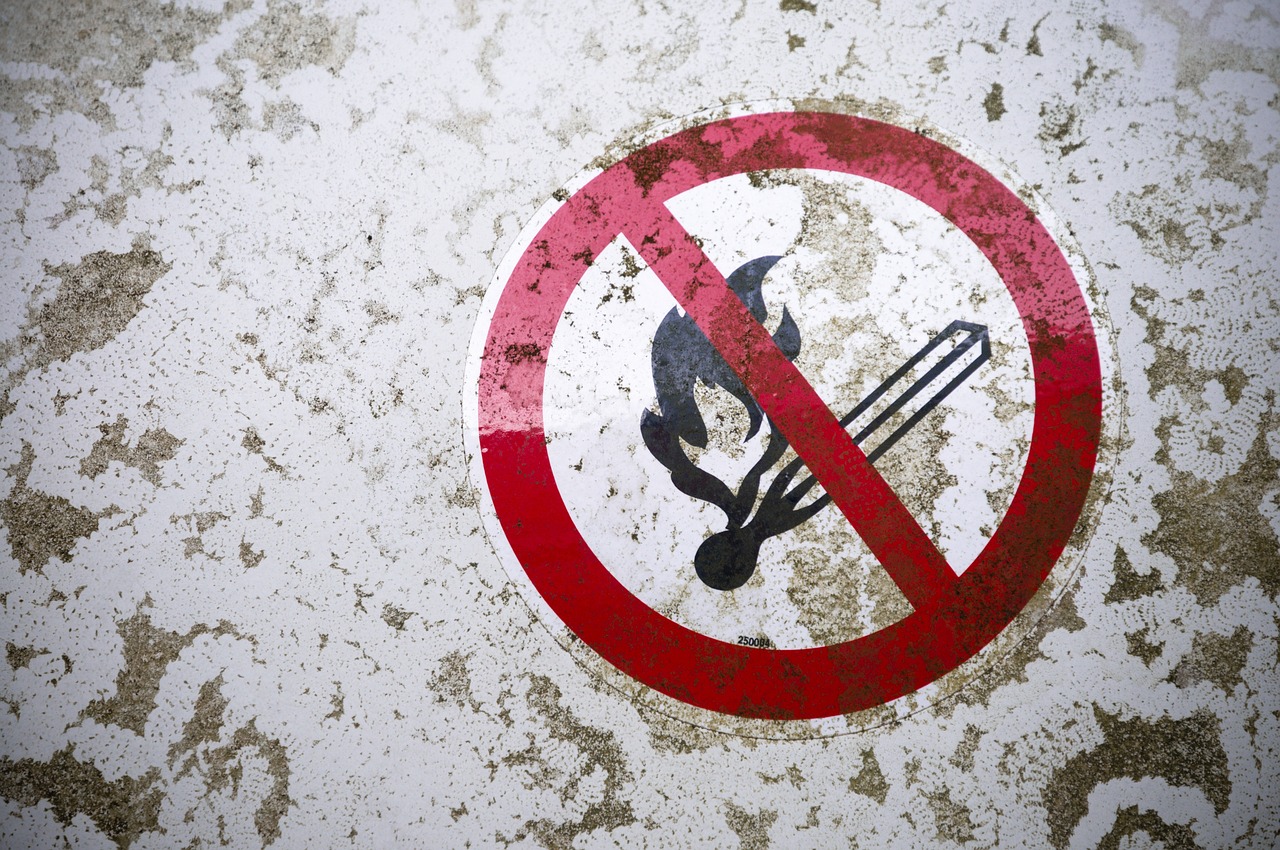
Utilizing Social Media
In today's digital age, social media has become a treasure trove of information, especially when it comes to job hunting. It's not just about scrolling through feeds; it's about leveraging these platforms to gain insights into potential employers. By exploring a company's social media presence, you can uncover a wealth of details that may not be evident from their official website or job postings. Think of it as peeking behind the curtain to see how the organization truly operates.
Start by visiting the company's official pages on platforms like LinkedIn, Facebook, and Twitter. Look for posts that showcase their culture, values, and employee interactions. Are they celebrating employee achievements? Do they share community involvement stories? These aspects can tell you a lot about the company's environment and whether it aligns with your values.
Additionally, consider checking out employee reviews on platforms like Glassdoor or Indeed. Here, current and former employees share their experiences, giving you a clearer picture of what to expect. Pay attention to comments regarding the company's treatment of employees and any mentions of safety practices. You might find recurring themes that can help you gauge the overall atmosphere.
Another useful strategy is to follow employees from the company on social media. This can provide insights into their day-to-day experiences and the workplace culture. Don't hesitate to engage with them—ask questions about their experiences. Most people appreciate the opportunity to share their thoughts and may offer valuable advice or warnings.
However, while social media can be a valuable tool, it's essential to approach it with a critical eye. Not everything you see online represents the full truth. Some companies curate their social media presence to paint a perfect picture, so look for patterns rather than isolated posts. By doing so, you'll be better equipped to make informed decisions about your interview and potential employment.
In summary, utilizing social media effectively can enhance your job search experience. By gathering insights about a company's culture and practices, you can navigate your interviews with greater confidence and safety. So, take the plunge—explore, engage, and empower yourself with the knowledge you need!
- What should I look for on a company's social media? Focus on their culture, employee interactions, and any community involvement to get a sense of the workplace environment.
- Is it safe to connect with employees on social media? Yes, engaging with employees can provide valuable insights, but always be respectful and professional in your approach.
- How can I verify the information I find on social media? Cross-reference insights with employee reviews on sites like Glassdoor and Indeed to ensure you're getting a well-rounded view.
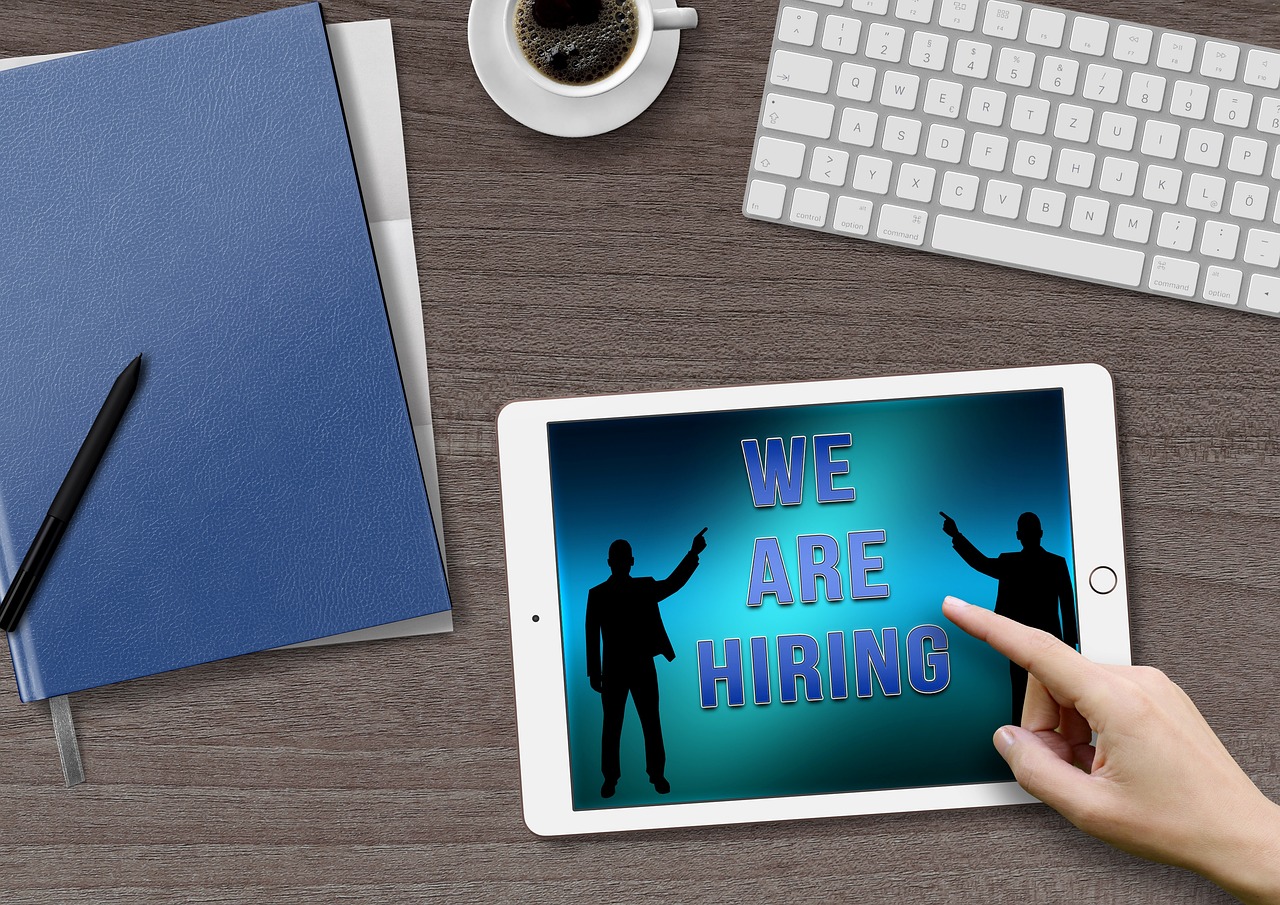
Verifying the Interview Location
When it comes to job interviews, location matters more than you might think. Imagine you're heading to an interview and the place feels off; that gut feeling can be a warning sign. Before you step out the door, take the time to verify the interview location. This simple step can save you from potential troubles and ensure your peace of mind.
First and foremost, double-check the address. Make sure you have the correct details by cross-referencing the company's website and any communication you've received. Sometimes, companies operate out of multiple locations, and you wouldn't want to end up at the wrong one, especially if it's in a less-than-ideal area. You can use tools like Google Maps to get a visual sense of where you're going; it’s like having a mini-recon mission before the big day!
Next, consider the surrounding environment. Is the area well-lit? Are there nearby establishments like cafes or shops? These factors contribute to your overall safety. If you find yourself in a deserted industrial park or a sketchy neighborhood, it might be time to reconsider. You might ask yourself, “Would I feel comfortable walking here at night?” If the answer is no, it’s a red flag. Additionally, take note of the accessibility of public transportation or parking facilities. Being able to park your car safely or hop on a bus without hassle can make a world of difference.
Also, don’t hesitate to reach out to the interviewer or the HR department to ask any questions you might have about the location. A reputable company will appreciate your diligence and should provide clarity about where you’ll be meeting. It’s not just about the job; it’s about your well-being. And remember, if you’re meeting at a coffee shop or a public place, ensure it’s a busy spot where you feel secure.
Lastly, always have a backup plan. If you’re feeling uneasy about the location, consider suggesting an alternative venue that feels safer to you. This shows initiative and a proactive approach to your own safety. After all, a job interview is not just about impressing the employer; it’s also about ensuring that you feel comfortable and secure throughout the process.
- What should I do if I feel unsafe during an interview? If at any point you feel uncomfortable or unsafe, trust your instincts. Excuse yourself politely and leave the situation.
- How can I ensure the interview location is legitimate? Research the company online, check reviews, and verify the location using maps and street views.
- Is it okay to ask for a different interview location? Absolutely! If you have concerns about the original location, it's reasonable to request an alternative that feels more secure.
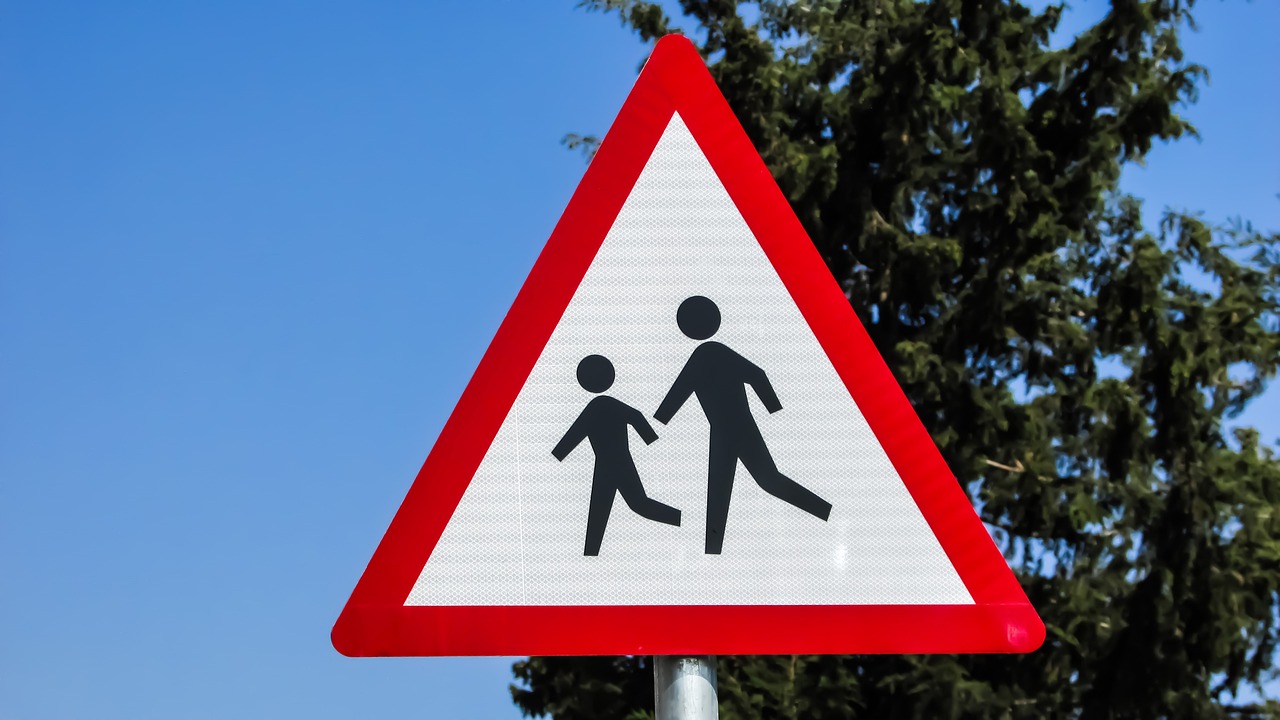
Preparing for the Interview
Preparation is key to ensuring your safety during a job interview. Think of it as gearing up for a big game; you wouldn't step onto the field without knowing your plays, right? The same goes for interviews. By planning your route, informing someone about your schedule, and carrying necessary items, you enhance your personal security during the meeting. It’s not just about looking good; it’s about feeling confident and secure as well.
First off, planning your route is essential. Make sure you know exactly how to get to the interview location. Consider using a GPS app to check the traffic conditions and plan for any delays. If you're unfamiliar with the area, do a dry run beforehand to ensure you know where you're going. This can help alleviate any last-minute stress and make you feel more at ease.
Next, it’s crucial to inform a trusted person about your interview details. Let a friend or family member know where you’re going, who you’re meeting, and what time you expect to be back. This not only provides reassurance for you but also ensures someone is aware of your whereabouts. You could even share your location via your phone for added safety. It’s like having a safety net; if anything feels off, someone is in the loop and can check in on you.
Additionally, consider carrying a few essential items with you. For instance, having a fully charged phone is a must. You never know when you might need to make a quick call or check your messages. Also, having a small personal safety device, like a whistle or pepper spray, can provide peace of mind. While we hope you won’t need it, it’s always better to be prepared. Think of it as a little insurance policy for your safety.
Finally, choosing appropriate attire for the interview is more than just making a good impression; it’s about feeling comfortable and confident. When you wear something that makes you feel good, it translates into your demeanor. You’ll walk in with your head held high, ready to impress. Plus, dressing appropriately can help you feel secure and professional during the meeting. Whether it’s a crisp suit or a smart casual outfit, make sure it aligns with the company culture and makes you feel like the best version of yourself.
In summary, preparing for your interview is about more than just rehearsing answers to common questions. It’s about creating a safe and confident environment for yourself. By planning your route, informing someone you trust, carrying essential items, and dressing appropriately, you’re setting yourself up for success. Remember, the more prepared you are, the more confident you’ll feel. And that confidence will shine through in your interview!
- What should I do if I feel unsafe during the interview?
If at any point you feel uncomfortable or unsafe, trust your instincts. It’s perfectly acceptable to excuse yourself and leave. Your safety is the priority. - How do I find out more about the company before the interview?
Research the company online, check their website, and read reviews on platforms like Glassdoor or Indeed. Look for any information about their workplace culture and safety practices. - Is it okay to ask about safety measures during the interview?
Absolutely! It’s your right to inquire about safety protocols, especially if the interview is in a public space or unfamiliar location.
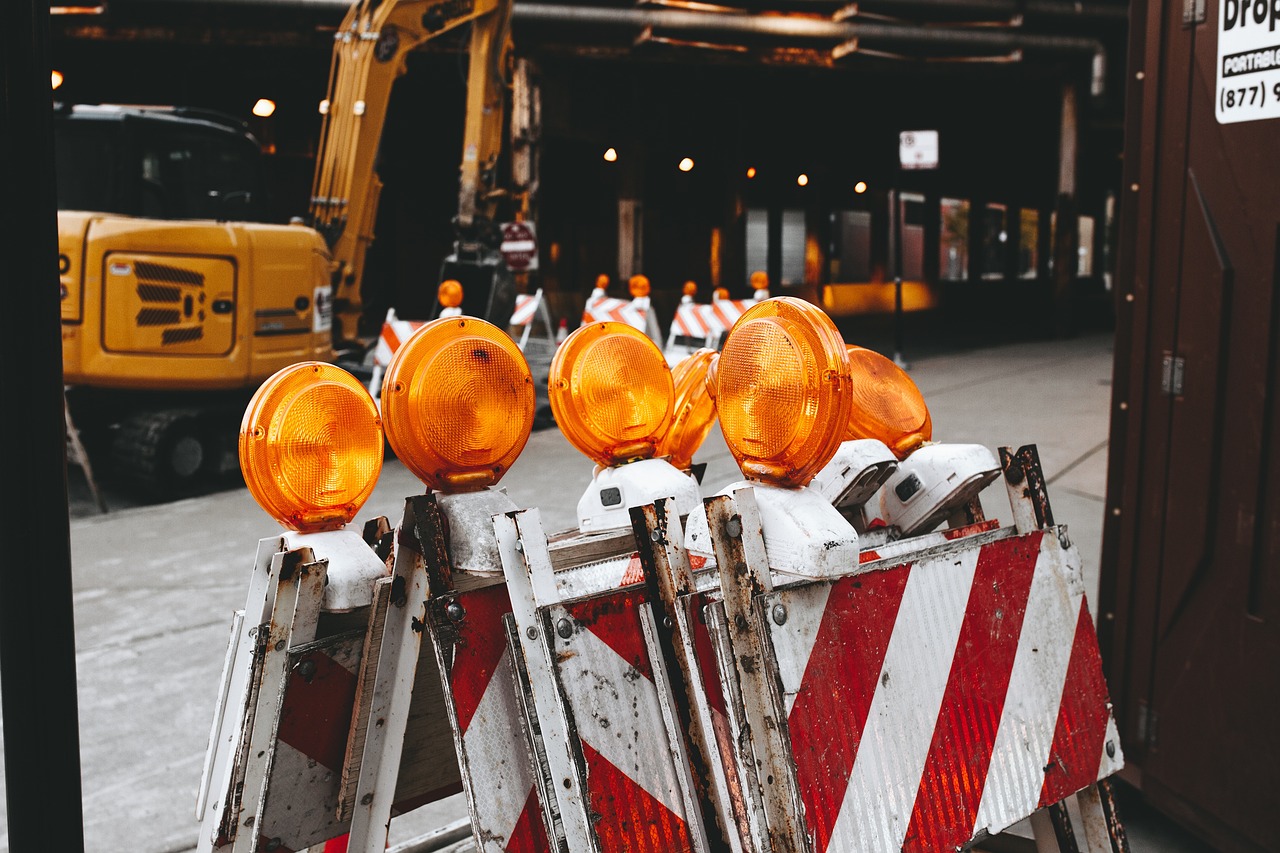
Informing a Trusted Person
This article discusses essential strategies and precautions to ensure your safety during job interviews, helping you navigate the process confidently and securely.
Job interviews can present various risks, including personal safety concerns and potential scams. Recognizing these risks is the first step in ensuring a safe interview experience.
Thoroughly researching the company before your interview can help you assess its legitimacy and safety. Knowing the company's background allows you to make informed decisions about the interview setting.
Online reviews and testimonials from former employees can provide valuable insights into the company's culture and safety practices, helping you gauge whether the organization is a safe place to work.
Certain red flags in company reviews, such as frequent complaints about safety or unethical practices, can indicate potential risks. Being aware of these signs can protect you during the interview process.
Social media platforms can also offer a glimpse into a company's environment. Observing employee interactions and company activities can help you assess its safety and culture.
Before attending an interview, ensure the location is safe and reputable. Confirming the address and checking for nearby amenities can contribute to a secure interview experience.
Preparation is key to a safe interview. By planning your route, informing someone about your schedule, and carrying necessary items, you enhance your personal security during the meeting.
Letting a trusted friend or family member know about your interview details is a simple yet effective way to increase your safety. When you share your plans, it creates a safety net that can be crucial in case anything goes awry. Think of it as having a safety parachute; you might not need it, but it’s comforting to know it's there. Here are some key points to consider:
- Share Location and Time: Make sure to inform them of the exact location and time of your interview. This way, they can easily check in on you or come to your aid if needed.
- Provide Contact Information: If you have the contact details of the interviewer or the company, share these too. It adds an extra layer of accountability.
- Set Check-in Times: Arrange a specific time to check in with your trusted person before and after the interview. This ensures they know you arrived safely and can follow up if they don’t hear from you.
In addition to these points, consider discussing your feelings about the interview with your trusted person. Sometimes, just talking about your nerves or excitement can help you feel more grounded. Plus, they might offer valuable advice or insights that you hadn’t considered. Remember, safety is not just about physical well-being; it’s also about emotional support.
Your instincts can be a powerful tool in assessing safety during interviews. If something feels off, it's essential to listen to those feelings and take necessary precautions to protect yourself.
- What should I do if I feel unsafe during an interview?
If you feel uncomfortable or unsafe at any point, trust your instincts. You can excuse yourself and leave the situation immediately. - How can I verify if a company is legitimate?
Research the company online, check reviews, and look for any red flags such as frequent complaints about safety or unethical practices. - Should I bring someone with me to the interview?
While it's generally recommended to attend interviews alone, you can always ask a trusted friend to wait nearby or drop you off and pick you up. - What information should I share with my trusted person?
Share the interview's time, location, the name of the interviewer, and any other relevant details that might be helpful.
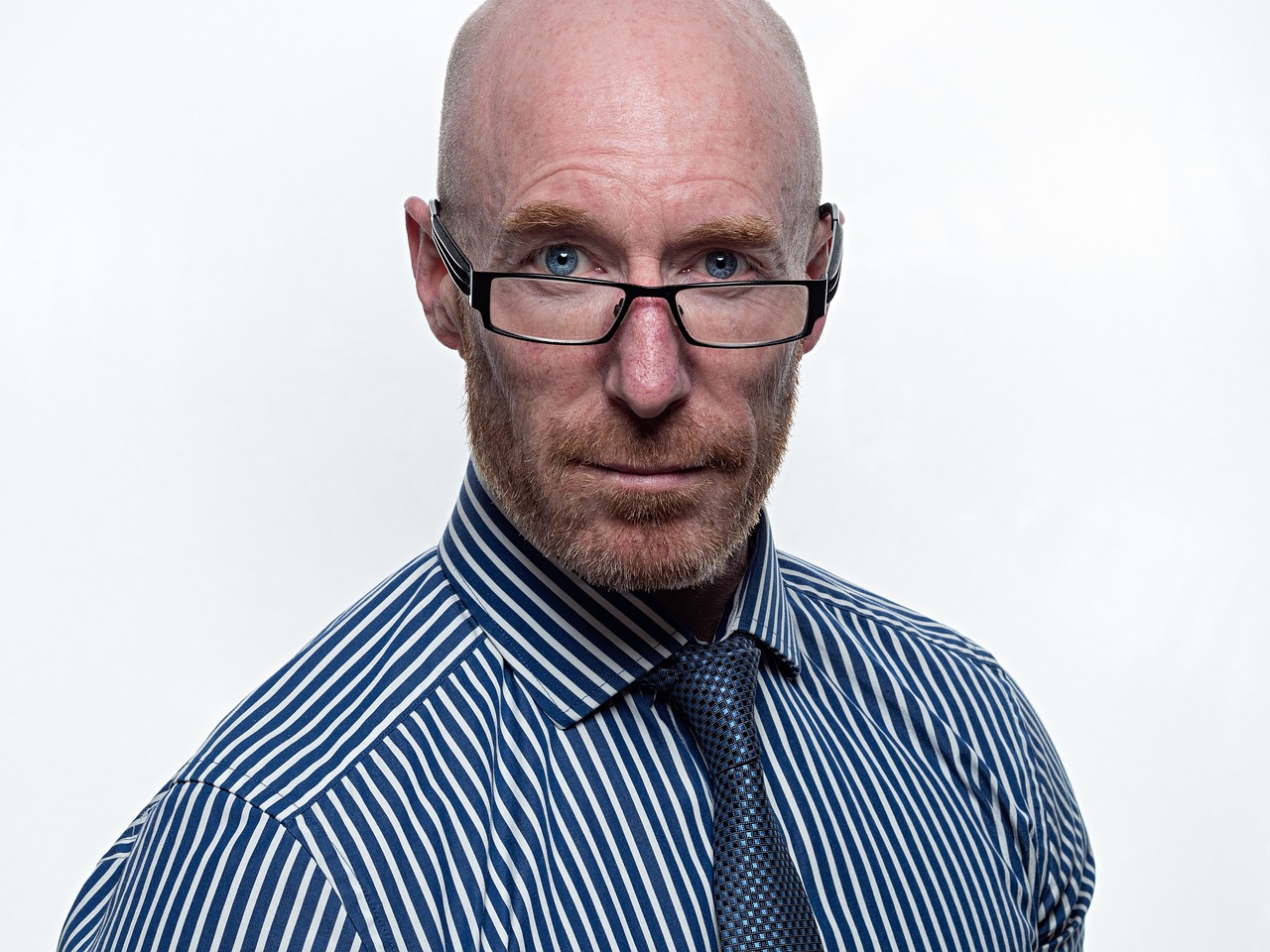
Choosing Appropriate Attire
When it comes to job interviews, the phrase "dress to impress" takes on a whole new meaning. Your attire can significantly impact the first impression you make, so choosing the right outfit is essential. Think of your clothing as your personal brand; it communicates your professionalism, confidence, and respect for the opportunity. But how do you navigate the vast sea of wardrobe choices? Let's break it down!
First and foremost, consider the company culture. Are you interviewing for a corporate position where formal attire is the norm, or is it a creative startup that embraces a more casual vibe? Tailoring your outfit to fit the company’s environment can help you blend in and feel more comfortable. For instance, if you're heading to a tech company known for its laid-back atmosphere, wearing a smart casual outfit could be perfect. On the other hand, if you're interviewing at a law firm, a tailored suit is likely the best choice.
Another critical factor is the fit and comfort of your clothing. Imagine walking into an interview feeling restricted by your outfit; it can be distracting and undermine your confidence. Choose pieces that fit well and allow you to move freely. A well-fitted blazer, for example, not only looks professional but also makes you feel empowered. Consider the following tips when selecting your attire:
- Opt for neutral colors: Colors like navy, black, gray, and white project professionalism and are less distracting.
- Avoid overly trendy pieces: While it’s great to express your style, stick to classic cuts and styles that won’t overshadow your qualifications.
- Accessorize wisely: Keep accessories minimal and tasteful. A nice watch or a simple necklace can add a touch of elegance without being overpowering.
Furthermore, don't forget about the importance of grooming. Your hairstyle, nails, and overall hygiene should reflect the same level of professionalism as your attire. A neat appearance complements your outfit and shows that you take the interview seriously. Just as you would polish your resume, ensure your personal presentation is equally polished.
Lastly, remember that confidence is the best accessory. When you feel good in what you're wearing, it shows. So, take the time to select an outfit that not only adheres to the company's dress code but also makes you feel like the best version of yourself. After all, you want to walk into that interview room radiating positivity and self-assurance!
- What should I wear to a virtual interview? Dress as you would for an in-person interview. Opt for professional attire that is visible on camera, and ensure your background is tidy.
- Is it okay to wear jeans to an interview? It depends on the company culture. If you’re unsure, it’s safer to opt for more formal attire.
- How can I feel more comfortable in my outfit? Choose clothing that fits well and is made from breathable fabrics. Try on your outfit ahead of time to ensure you feel good in it.
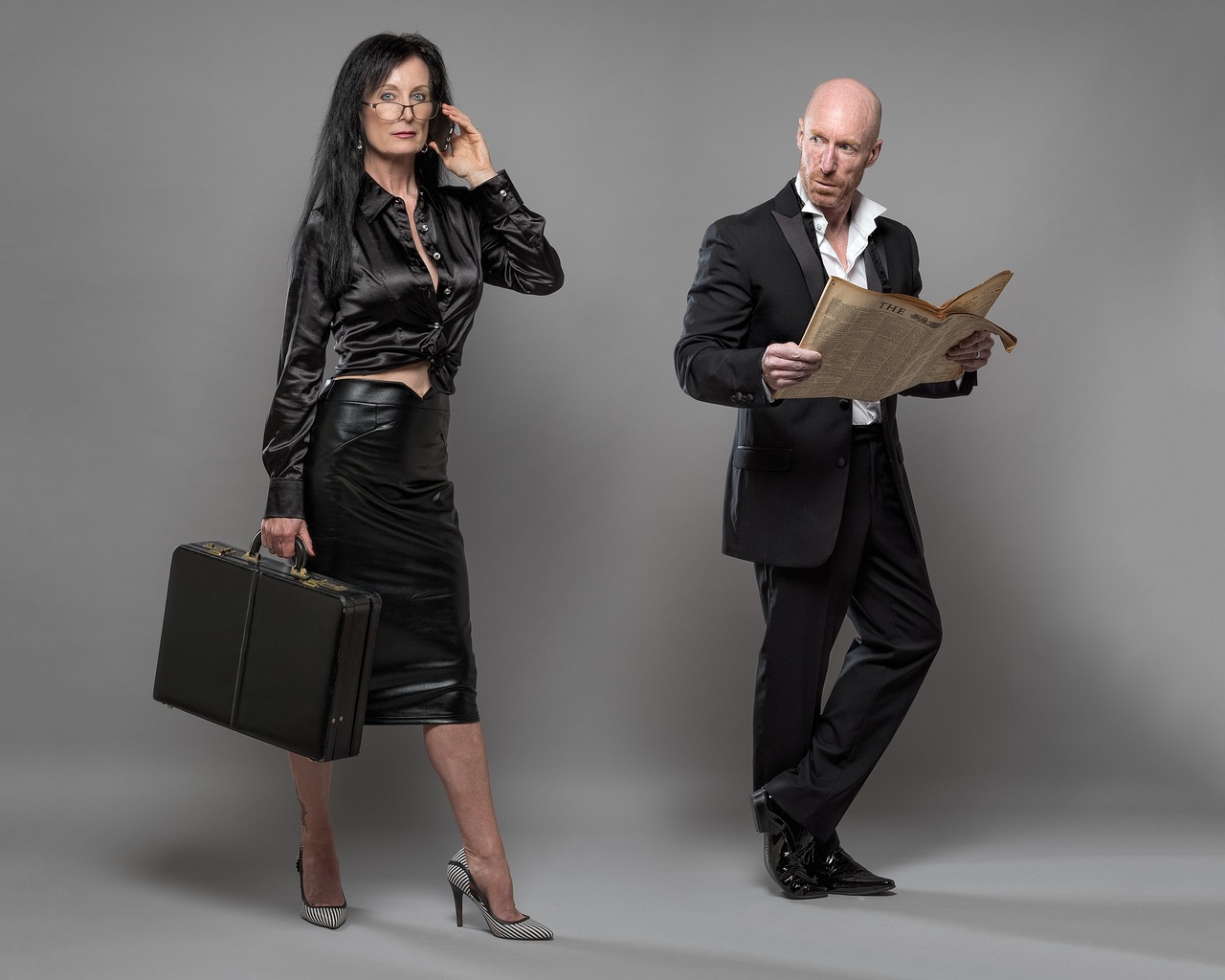
Trusting Your Instincts
When it comes to job interviews, can be your best ally. Think of your gut feelings as a built-in safety mechanism, alerting you to potential dangers or discomforts in a situation. Have you ever walked into a room and instantly felt that something was off? Maybe it was the way the interviewer looked at you or the strange vibe in the air. Whatever it is, these instincts are often your subconscious picking up on cues that your conscious mind might overlook.
In today's world, where everything seems polished and rehearsed, it's easy to get caught up in the excitement of landing a job. But remember, not every opportunity is a good one. If you find yourself feeling uneasy about the interview location, the interviewer, or the company itself, don't ignore those feelings. They could be your subconscious warning you to proceed with caution.
Consider the following scenarios where your instincts might come into play:
- Unprofessional Behavior: If the interviewer arrives late, is unprepared, or behaves inappropriately, these are red flags. Your gut might be telling you that this is not a place you want to work.
- Inconsistent Information: If the job description you applied for doesn't match what the interviewer is saying, or if there are vague responses to your questions, your instincts might be signaling that something is amiss.
- Pressure Tactics: If you feel rushed or pressured to make decisions on the spot, it’s a good idea to step back. A legitimate employer will give you the time you need to consider their offer.
Ultimately, your instincts are there to protect you. If something feels wrong, it’s completely okay to excuse yourself from the interview. You can say, “Thank you for your time, but I believe I need to reconsider this opportunity.” This simple statement can empower you and remind you that you have the right to prioritize your safety and comfort over a job.
In addition to trusting your instincts, it’s also beneficial to prepare mentally for the interview. Think about the questions you want to ask and the aspects of the job that are most important to you. This preparation will not only boost your confidence but also help you gauge whether the job aligns with your values and needs.
Remember, job interviews should be a two-way street. You’re assessing them just as much as they’re assessing you. So, when those gut feelings kick in, pay attention! They might just lead you to the right decision.
- What should I do if I feel uncomfortable during an interview? If you feel uneasy, trust your instincts and politely excuse yourself. Your comfort and safety are paramount.
- How can I prepare to better trust my instincts? Familiarize yourself with common interview red flags and practice asking questions that are important to you.
- Is it okay to decline a job offer based on my instincts? Absolutely! If something feels off, it's better to walk away than to accept a position that doesn't feel right.
Frequently Asked Questions
- What should I do if I feel unsafe during a job interview?
If you feel uncomfortable or unsafe during a job interview, trust your instincts. You have every right to excuse yourself and leave. It's better to prioritize your safety over a potential job opportunity. Always have an exit plan in mind.
- How can I research a company before my interview?
Researching a company can be done through various methods. Start by visiting their official website, checking online reviews on platforms like Glassdoor, and looking at their social media profiles. This can give you insight into the company culture and any potential red flags.
- What are some red flags I should look for in company reviews?
Red flags can include consistent complaints about safety, unethical practices, or a high turnover rate. If multiple reviews mention a toxic work environment or issues with management, it might be wise to reconsider attending the interview.
- How can I verify the interview location is safe?
Before the interview, check the address on a map and look for nearby amenities like cafes or public transport. You can also search for reviews or news articles about the area to ensure it’s a reputable location.
- Should I inform someone about my interview details?
Absolutely! Letting a trusted friend or family member know your interview schedule and location is a smart move. This way, someone is aware of your whereabouts and can check in on you, adding an extra layer of safety.
- What type of attire should I wear to an interview?
Your attire should be professional yet comfortable. Dressing appropriately not only makes a good first impression but also helps you feel confident. Choose clothes that fit well and make you feel good about yourself.
- What if the interviewer asks inappropriate questions?
If you encounter inappropriate questions, it’s okay to address them directly or choose not to answer. Remember, the interview is a two-way street, and you deserve to be treated with respect.
- How can I trust my instincts during an interview?
Your instincts are powerful! Pay attention to how you feel during the interview. If something feels off—whether it’s the interviewer’s behavior or the environment—don’t hesitate to take action. Your comfort and safety come first.



















